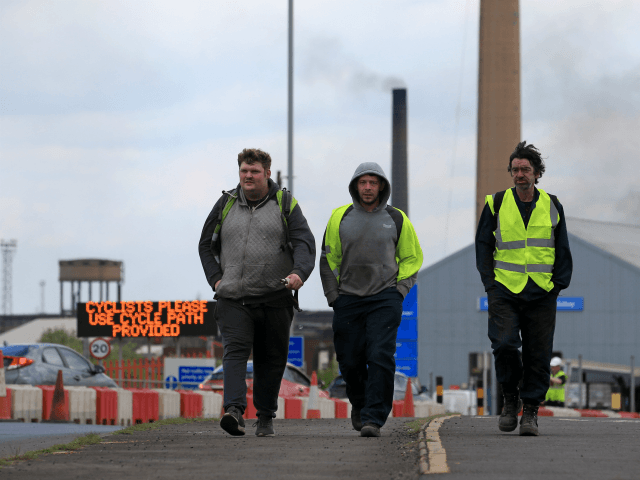British Steel is on the verge of collapse. I would love to tell you that this is purely the result of EU carbon emissions regulations designed by green zealots to put heavy industry out of business. But actually, it’s more complicated than that.
In fact the issues involved go to the heart of perhaps the most important question facing Britain right now: what kind of country do we want to be if and when we finally escape the burning building that is the European Union?
If you believe this opportunistic video from the Brexit Party, it’s all down to the government’s failure to deliver Brexit.
Richard Tice on British steel. pic.twitter.com/Hj6LBb8gZ3
— The Brexit Party (@brexitparty_uk) May 22, 2019
This is fair up to a point. EU competition regulations mean that Britain is prevented from bailing out or subsidising struggling industries. British steel may be of a very high quality, but if the Americans and the Chinese are either subsidising their own industries or protecting them with tariffs, it’s very hard for Britain’s steel produce to compete in international markets, making its demise almost inevitable.
But the Brexit Party line, as expressed here by its chairman Richard Tice, does presuppose that it is the job of the British government to keep bailing out failing industries with taxpayers’ cash.
You could certainly make a good case for this with regards to British Steel. It’s not just that 4,400 jobs are under threat but that they are 4,400 highly skilled jobs in a depressed region — Scunthorpe in Lincolnshire — which can ill afford the blow of a factory closure. As with the closing of the coal mines, this is about more than economics — it’s about community and self-respect and tradition. The other main argument is that steel is a strategically vital industry which one cannot afford to contract out to foreign nations. What if at some stage we find ourselves involved in another world war and we no longer have a steel industry available to ramp up in order to produce all our materiel?
The countervailing argument is that British Steel is simply a basket case — and that rescuing it just pours good money after bad. There’s a reason Tata steel sold the business in 2016 to the private investment firm Graybull Capital for just £1 — and it wasn’t because it felt there was an amazingly bright future for steel production in the UK.
And anyway, do we believe in capitalism or crony capitalism? The fact is that the healthiest economies are the leanest, most versatile — and most responsive to the iron demands of what Schumpeter called ‘creative destruction.’ If a business is dying on its feet then that’s probably the market’s way of saying — as it has in the case of Jamie Oliver’s chain of restaurants selling overpriced generic Italian food — that it’s time to reallocate those scarce resources to a place where they are wanted and needed.
I’m not sure I know what the solution to this dilemma is. What I do know is this: once Britain is an independent sovereign nation again, such decisions can be taken by our own government — and not made for us by a bunch of unelected technocrats at the European Commission.

COMMENTS
Please let us know if you're having issues with commenting.